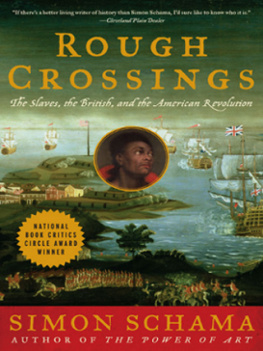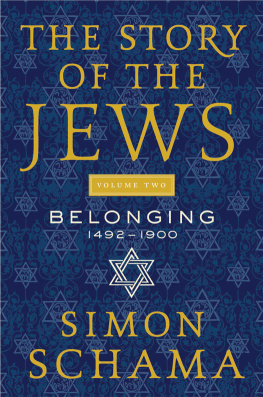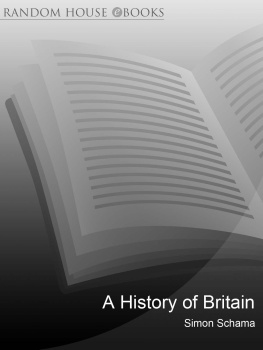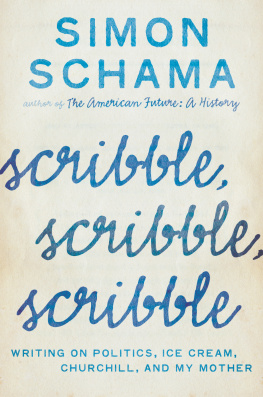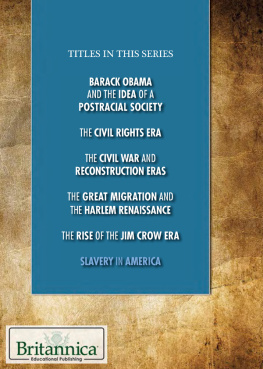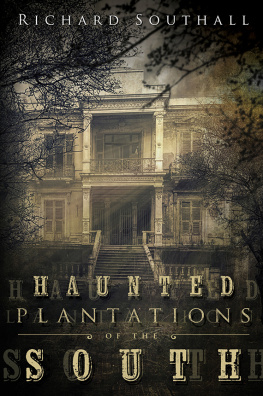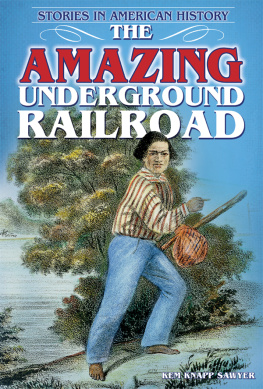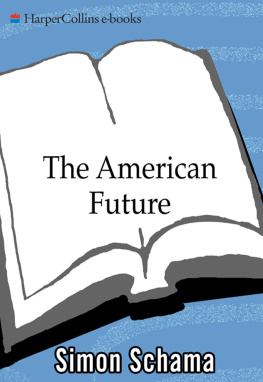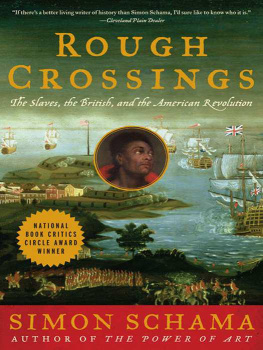Henry Washington, escaped slave of George Washinton, freed by British, later settler in Nova Scotia and Sierra Leone
Granville Sharp, leading British abolitionist and instigator of first black settlement in Sierra Leone
William Sharp, brother of Granville, surgeon to King George III and to London poor
William Murray, Lord Chief Justice Mansfield, responsible for seminal rulings on legal status of slaves in Great Britain
Jonathan Strong, Thomas Lewis, James Somerset: escaped slaves in London, victims of abduction and subjects of court cases brought by Granville Sharp
Henry Laurens, South Carolina Patriot, merchant, delegate to and president of the Continental Congress
John Laurens (son of Henry), aide-de-camp to George Washington, abolitionist officer in Continental army
Anthony Benezet, Quaker American in Philadelphia, correspondent with Granville Sharp
Thomas Jeremiah, free African-American in Charleston, hanged for alleged conspiracy to raise slave insurrection
John Murray, Lord Dunmore, last British governor of Virginia, responsible for 1775 proclamation offering freedom to slaves of Patriots in return for military service with the Royal Army
Lord William Campbell, last British governor of South Carolina
Thomas Peters, sergeant in the British Black Pioneers, settler in Nova Scotia and Sierra Leone
Moses Wilkinson, blind Methodist preacher in Birchtown, Nova Scotia
Mary Perth, escaped slave from Virginia, freed by British, settler in Sierra Leone
John Kizell, son of Sherbro chief, escaped slave, loyalist soldier in American volunteers, North Carolina, settler in Sierra Leone
James Moncrief, British officer in siege of Savannah commanding black loyalist soliders and sappers
General Sir Henry Clinton, British commander-in-chief in America, patron and protector of British Black Pioneers
David George, African-American Baptist minister, escaped slave, free settler with his wife Phyllis, in Novia Scotia and Sierra Leone
General Lord Charles Cornwallis, British military commander in America
Boston King, and his wife Violet, escaped slaves, loyalist settlers in Nova Scotia and Sierra Leone
Colonel Tye, former slave in Monmouth County New Jersy, loyalist partisan leader
Stephen Blucke, free African-American, settler in Nova Scotia
Murphy Steele, sergeant in the Black Pioneers, friend of Thomas Peters
Olaudah Equiano aka Gustavus Vassa, London abolitionist, author of The Interesting Narrative of Olaudah Equiano the African (1789)
Sir Charles Middleton, MP, abolitionist and Comptroller of the Royal Navy
James Ramsay, British naval surgeon turned clergyman and abolitionist
Thomas Clarkson, leading British abolitionist
Sir Guy Carleton, last commander-in-chief of British force in America, later Governor of Canada
Brigadier Samuel Birch, commandant of British garrison in New York, signatory of passport, certificate confirming freedom of black loyalists
Benjamin Whitecuffe, Long Island black farmer, loyalist spy for the British
William Wilberforce, member of Parliament for Hull and parliamentary leader of campaign to abolish the slave trade
Jonas Hanway, British reformer and philanthropist
Henry Smeathman, British scientist and eccentric, original proposer of Sierra Leone as site for black settlement
Thomas Boulden Thompson, commander of fleet carrying first settlers to Sierra Leone
Alexander Falconbridge, former slave-ship surgeon, agent in Africa for St Georges Bay (later the Sierra Leone) Company
Anna Maria Falconbridge, Alexanders wife, author of A Narrative of Two Voyages to the River Sierra Leone in the years 17913
King Tom, Temne chief in Sierra Leone
The Naimbana, paramount chief in Robana, Sierra Leone
King Jimmy, Temne chief in Sierra Leone, destroyer of Granville Town Sir John Parr, governor of Nova Scotia
Lieutenant John Clarkson, British naval officer, subsequently abolitionist and governor of second black settlement in Sierra Leone
Michael Wallace, entrepenuer, landowner and council member in Halifax, Nova Scotia
Benjamin Marston, Harvard-educated ex-merchant, surveyor in Shelburne, Nova Scotia
Henry Thornton, evangelical banker and abolitionist, first chairman of the Sierra Leone Company
Lawrence Hartshorne, Quaker merchant, Clarksons friend in Nova Scotia
Dr. Charles Taylor, surgeon appointed by the Sierra Leone Company to accompany the black fleet to Africa
Cato Perkins, black Methodist preacher, settler in Nova Scotia and Sierra Leone
Stephen Skinner, New Jersey loyalist and Shelburne settler
Captain Jonathan Coffin, master of the Lucretia , John Clarksons flagship
Isaac Dubois, American loyalist, Carolinan cotton planter, settler in Sierra Leone, friend of Clarkson
Isaac Anderson, free black carpenter from Charleston, settler in Sierra Leone, militant campaigner for black rights
Nathaniel Wansey, leader, with Isaac Anderson, of revolt against goverment of Sierra Leone
William Dawes, acting governor of Sierra Leone after John Clarkson
Zachary Macaulay, governor of Sierra Leone, father of the historian Thomas Babington Macaulay
Thomas Ludlam, fourth governor of Sierra Leone
Paul Cuffe, free black, landowner, trader with Sierra Leone, Quaker and abolitionist
Frederick Douglass, escaped slave-turned-abolitionist orator
The Hutchinson Family singers: Jesse, Abby, Judson and Asa, white religious and folk singers, abolitionist fellow passengers with Douglass on SS Cambria
Captain Charles Judkins, ex-slaver turned abolitionist, master of Cunarder SS Cambria

